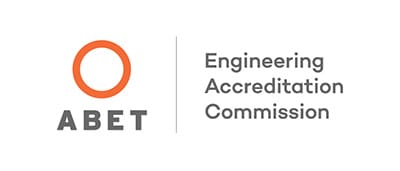Home / Academics / Programs / Major / Civil Engineering
Civil Engineering
Bradley’s Civil Engineering program prepares you to design, build, and sustain the infrastructure that shapes our world. From bridges and highways to sustainable cities and smart infrastructure, you’ll gain hands-on experience tackling real engineering challenges. With expert faculty, state-of-the-art labs, and a senior capstone project, you’ll graduate ready to make a lasting impact in a rapidly evolving industry.
Degree Options
Students may apply to the 4+1 Master of Science in Civil Engineering program while completing their bachelor’s degree. Applications are considered in the spring of junior year or the fall of senior year. Students will not be eligible to apply after the first day of the spring semester of their senior year.
Experiential Learning
Bradley’s ABET-accredited Civil Engineering program blends rigorous coursework with hands-on learning, faculty mentorship, and real-world applications to prepare students for leadership and innovation in the field.
Industry-Connected Learning
- Internships and co-ops with leading companies and government agencies provide career-launching experience
- Faculty-student mentorship supports career guidance, research, leadership development, and ethics
- Networking events and industry conferences, including ASCE’s Civil Engineering Conference and the Transportation Research Board Annual Meeting, connect students with professionals
Hands-On Projects & Research
- Comprehensive senior capstone projects tackle real-world infrastructure and sustainability challenges
- Hands-on labs in geotechnical engineering, concrete materials, and fluid mechanics develop practical industry skills
- Sponsored research with faculty allows students to contribute to emerging technologies and present at national and international conferences
Competitive & Global Experience
- Award-winning student teams compete in ASCE Concrete Canoe and AISC Steel Bridge competitions
- Study-abroad programs provide a global perspective on sustainable infrastructure and urban development
- Field trips to water treatment plants, steel fabrication facilities, and construction sites connect classroom concepts to real-world applications
Cutting-Edge Technology & Innovation
- Engineering software training ensures proficiency with industry-standard tools
- KEEN (Kern Entrepreneurial Engineering Network) integration instills an entrepreneurial mindset through innovative learning approaches
Program Details
Bachelor of Science in Civil Engineering (BSCE)

Accredited by the Engineering Accreditation Commission of ABET, under the commission’s General Criteria and Program Criteria for Civil Engineering.
Mission and Objectives
Produce graduates who possess a keen awareness of the global dimensions of our profession, leadership skills required to serve our society, and the technical knowledge to pursue multiple career paths, including advanced degrees. To achieve our mission, our department will strive to achieve the following civil engineering program objectives:
- Our alumni serve as leaders and stewards in their profession and society by working collaboratively to encourage innovation, enhance infrastructure solutions, support entrepreneurial initiatives, and / or contribute to public policy.
- Our alumni apply ethics and sustainable development principles in their profession, commit to life-long learning, earn licensure, and become experts and mentors in their profession.
- Our alumni possess the technical proficiency, mindset, and communication skills that enable them to effectively engage in interdisciplinary and culturally diverse teams and thrive in their careers.
Student Outcomes
In order to meet these program educational objectives, students graduating from Bradley’s civil engineering program will attain the following outcomes.
- an ability to identify, formulate, and solve complex engineering problems by applying principles of engineering, science, and mathematics
- an ability to apply engineering design to produce solutions that meet specified needs with consideration of public health, safety, and welfare, as well as global, cultural, social, environmental, and economic factors
- an ability to communicate effectively with a range of audiences
- an ability to recognize ethical and professional responsibilities in engineering situations and make informed judgments, which must consider the impact of engineering solutions in global, economic, environmental, and societal contexts
- an ability to function effectively on a team whose members together provide leadership, create a collaborative environment, establish goals, plan tasks, and meet objectives
- an ability to develop and conduct appropriate experimentation, analyze and interpret data, and use engineering judgment to draw conclusions
- an ability to acquire and apply new knowledge as needed, using appropriate learning strategies
Career Opportunities
Graduates of our program launch careers in a wide range of sectors, including government agencies, public works departments, consulting firms, and construction companies that serve both private and public clients. They don’t just build projects—they shape communities. Whether planning sustainable infrastructure, integrating environmental and social impacts, or managing construction from the ground up, our graduates play essential roles in creating a better future.
Specialization Areas:
- Structural: Design and analyze buildings, bridges, and other essential structures.
- Transportation: Plan and optimize roadways, railways, airports, and transit systems.
- Environmental: Develop innovative solutions for water treatment, waste management, and pollution control.
- Construction: Lead and manage construction projects from concept to completion.
- Geotechnical: Analyze soil and rock to ensure safe and stable foundations and underground structures.
- Water Resources: Design and manage water supply systems, flood control, dams, and stormwater management.

